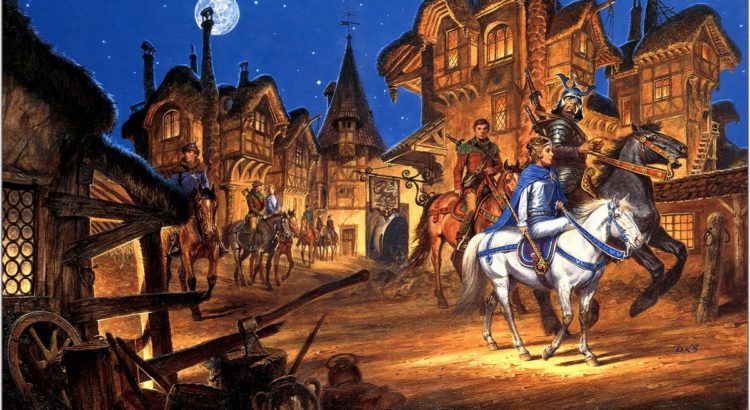This last summer I made it a goal to read more, and to ultimately fall in love with reading again by reading something truly amazing. I hadn’t read anything that I had picked out in awhile, mostly just epic poetry for school, and although that’s all great writing and storytelling, it just feels so stale and monotonous, especially when there are deadlines that force you to skip half of the chapters. I was determined to find something fresh and exciting to read over the summer, but it ended up being much more of a challenge than I anticipated. I started out by trying to read Don Quixote, a famous and classical book about a man with grand delusions of knighthood, set off on a quest of comedy and heroics; this was a huge mistake, as the book is dense and over a thousand pages long. I wouldn’t even care to admit how little I was able to read before I couldn’t bear to pick it up. That endeavor being a failure, I decided to pursue science fiction, a genre well known for being unique and interesting; specifically I wanted to read the works of Philip K. Dick, who wrote the short story Do Androids Dream of Electric Sheep which inspired the Blade Runner movies. I picked up a book of his collected short stories and got to work. Although they were all great standalone stories, with fascinating concepts and tough philosophical questions, I quickly got tired of them, simply because they were so short. I wanted an epic story, where I could connect to the characters and watch them change and grow, while on some long and exciting journey.
Eventually this led me to the fantasy section at the local bookstore, and about an hour of comparing different obscure and mediocre sounding titles. I never realized how small the fantasy genre was for adults; when I was a kid, all I read was fantasy and it seemed like there was enough to last a lifetime. The most advertised and well known was of course the series A Song of Ice and Fire by George R. R. Martin, which was adapted to the wildly popular TV show, A Game of Thrones. I was already against reading the series however: I had heard that the books were boring, drawn out, and dense, but most of all I knew that the series was unnecessarily vulgar and sexualized. I wasn’t looking to get invested in such an infamous series, especially when I already had such a negative feeling about it. This pretty much left me with one other choice: The Wheel of Time series by Robert Jordan. I knew nothing about the series, my phone was dead so I couldn’t check reviews, and the book didn’t even have a summary on the back or inside, so I had to start reading it right then and there, just to get a feel for what it even was. I read the prologue and I was hooked; even knowing the bare minimum about the story I was drawn in by the classic fantasy writing style and the mysterious lore that raised so many burning questions. All in all it seemed like exactly what I was looking for.

After buying it, when my phone was working again, I checked out the reviews and my excitement was instantly dampened: “it’s a ripoff of The Lord of the Rings” the critics and internet exclaimed unanimously. As somebody who had read the entirety of The Lord of the Rings already, I was definitely dreading reading somebody’s cheap knockoff of such a masterpiece. Having just finished the first book of The Wheel of Time series, The Eye of The World, I can confidently say that the series stands alone and successfully defines itself against the writings of J.R.R. Tolkien. The Lord of the Rings is an amazing epic, focusing on one long journey featuring a cast of important characters, but as a result it is slow and drawn out, with the few exceptional events all blending into one general idea. Jordan contrasts this style in almost every way: his story is fast-paced, featuring a large cast of constantly changing characters going through non-stop events, hardly catching a break to breathe, while he paints an entire world around them, featuring lore and world building that even rivals J.R.R. Tolkien.
I can see how Jordan’s work might be seen as less distinguished, cheaper, and more focused on quantity over quality writing, but I would strongly disagree and argue that it only seems so in comparison to The Lord of the Rings, when really they are two completely different approaches to the fantasy genre. I can’t even begin to argue whether or not one is better, since they both establish themselves in completely different ways. Regardless of the comparisons, Robert Jordan does not disappoint: he completely satisfies my need for a unique character and lore driven journey of epic proportions. I find myself stuck to the page again, loving every word, from the writing to the story to the entire world he has built. It’s an amazing feeling, and I’m overjoyed that there are 14 books in the series, since I already know I’ll be wanting more when I’m finished. If you have been looking for a book to dive into, or are an endearing fan of high fantasy, look no farther: The Wheel of Time turns for you.



Leave a Reply
Be the First to Comment!